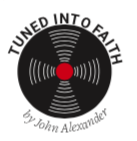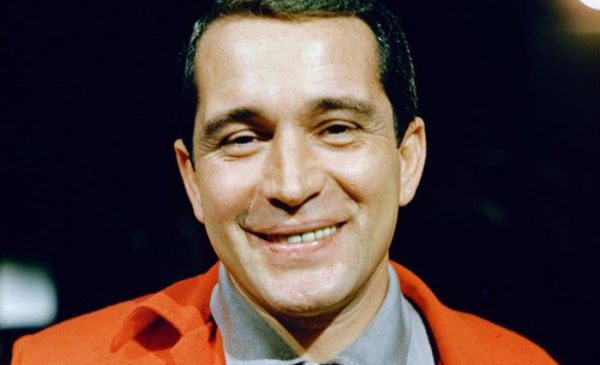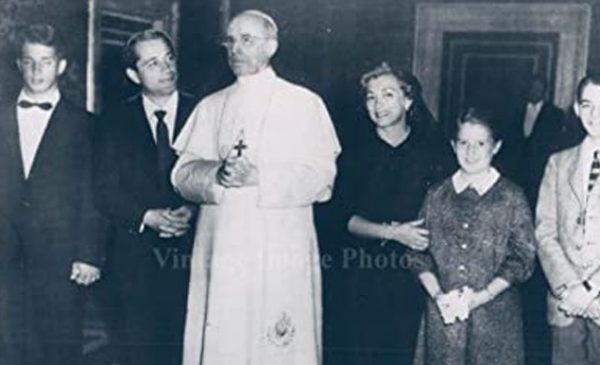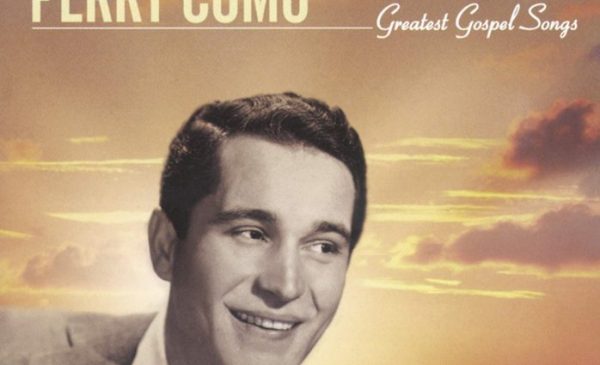Who would have ever imagined that a young barber from Canonsburg, a rural town in west-central Pennsylvania located about 20 miles from Pittsburgh, would ultimately become one of the most popular entertainers of the 20th century?
Perry Como had an easygoing charm that helped make him one of the most beloved vocalists of his era. He did not have the dangerous swagger of Sinatra or the suave persona of Dean Martin, but rather a relaxed and warm demeanor that made him feel like a part of the family.
For his 25th wedding anniversary, the Como’s, along with their children, were granted a private audience with Pope Pius XII. The Pontiff presented Como with a silver medallion, his wife received a rosary and his children were given holy photos. That meeting on July 28, 1958, was a milestone moment in Como’s life. 
Pierino Ronald “Perry” Como was raised in a Catholic Italian-American family and always emphasized how important his faith was to him. He believed in the power of prayer and never gave in to the temptations associated with a career in the entertainment industry. He was married to his wife Roselle, the teenage sweetheart that he met at a town picnic in 1929, and they raised three children together in a traditional, non-show-business household.
Como left his hometown barbershop to sing with Freddie Carlone’s local band in 1933, and four years later he was hired by Ted Weems to be his band’s featured vocalist. In 1942 he got his own CBS radio show and in 1943 he charted with his first single, the Top-20 ballad “Goodbye, Sue.” He made the Top-10 one year later with the standard “Long Ago (And Far Away),” which had previously been released by Bing Crosby, one of Como’s biggest influences.
In 1945 Como scored his first No. 1 hit, “Till the End of Time.” It sold over two million copies and remained at the top of the chart for 10 weeks. Based on Chopin’s “Polonaise in A-Flat Major,” the song cemented Como’s standing as a recording star since he was the first artist to chart with it. In the song Como professes his devotion to his love in the lines, “Till the wells run dry and each mountain disappears; I’ll be there for you to care for you through laughter and through tears.”
He reached No. 1 twice in 1946 with the pining “Prisoner of Love,” and the yearning “Surrender,” wherein he pleads with his love to “love me as I love you.” And in 1947 he hit the summit once again with the playful Italian-lullaby “Chi-Baba, Chi-Baba (My Bambino Go to Sleep).” And although the sentimental vaudeville favorite that followed it only reached No. 2, “When You Were Sweet Sixteen,” became one of Como’s most beloved ballads.
Como closed out the ’40s with two more No. 1 hits — the playful “A-You’re Adorable,” and the now-classic “Some Enchanted Evening” from the Broadway musical “South Pacific.” Como was the first to chart with the song that has since been recorded by hundreds of artists.
The 1950s were extremely good to Como. Among his biggest hits during the decade was the song “If,” with the opening line, “If they made me a king I’d still be a slave to you,” the breezy polka “Hoop-Dee-Do” and “Don’t Let the Stars Get in Your Eyes,” a country-influenced song originally recorded by Red Foley.
He also topped the charts in the ‘50s with “No Other Love,” “Wanted,” “Hot Diggity (Dog Ziggity Boom),” “Round and Round” and “Catch a Falling Star.”
The hits slowed down for Como during the ’60s, but in 1970 he made the Top-10 yet again with the tender “It’s Impossible,” and his last Top-40 single, 1973’s “And I Love You So,” which was written for him by “American Pie” songwriter Don McLean.
In all, Como landed 150 hits on the pop chart between 1943 and 1974, including 97 Top-20 records, 48 Top-10 singles, and 14 No. 1 hits. He also recorded multiple albums of religious music, including popular Catholic hymns like “Ave Maria,” “The Rosary” and “The Lord’s Prayer.”
In fact, Como reached No. 28 on the pop chart with his solemn rendition of “The Lord’s Prayer.” Como’s reverent rendering of the prayer made his version the first of only two charting entries for the eternal hymn. The second was a Top-5 single for Sister Janet Mead in 1974. The B-side of Como’s “The Lord’s Prayer” was an unforgettable performance of Schubert’s “Ave Maria,” which reached No. 22 on the chart.
Como also embraced his Catholicism with his recording of “The Rosary” with lyrics that proclaim, “I kiss each bead and strive at last to learn to kiss the Cross.” Other Catholic hymns that Como covered include “Holy God We Praise Thy Name,” “Act of Contrition” and “Goodnight, Sweet Jesus.”
Como’s recording career was so successful that it led to his hosting a number of radio and television shows, including the popular variety series, “The Perry Como Show” which aired from 1955 to 1959. It was followed by the “Perry Como’s Kraft Music Hall” series which ran from 1959 to 1967. Como was the highest-paid performer in the history of television at the time.
During his incredible career, Perry Como did it all — radio, movies, television. Like his inspiration Bing Crosby, Como epitomized the consummate entertainer whose warmth and sincerity appealed to generations of music lovers the world over.
“Somewhere along the line Someone sure put his hand on my head. I keep trying to deserve it,” Como explained in a 1953 article he wrote for Guideposts magazine. “We’ve got reason to be thankful, Roselle and I. But we never talk about it. That kind of gratitude isn’t for conversation. Faith is a word for doing, not talking.”
In the same article, Como said that everything that ever happened to him had been the result of faith. “The faith I found in my father’s house, and now find in my own house, and in my world. Sure, there are different beliefs, but as long as men believe, they believe basically the same thing. The lyrics may be different, but the music is always the same.”
Perry Como was born on May 18 and there’s no better way to celebrate his life than by listening to his incredible catalog of songs. After all, his greatest legacy is the music he left for generations to enjoy and there’s no doubt that when we listen to his songs, both secular and religious, the sound of his deep and abiding faith can clearly be heard in every line.



